

Narrative Writing Sample | GCE O Level English (1123) | Best Notes
You want to get an A* in GCE O Level English but, your writing skills are not very good? Even if you are good at writing, you want to see some work of other students to learn something new?
Do not, worry. I am here to help. But before, let me introduce the topic to you.
Narrative writing is a form of writing in which there is a main character. This character faces a problem or an event and then deals with it.
In simple words, it tells you a story with a proper sequence of events (plot). For example, you share your amazing story about your exams. So basically, if you do this, you are using characteristics of a narrative.
Suspense if a main part of a narrative. But, we will take a look at it later in this article.
You should know that narrative is a part of section 2 in paper 1 of O level English. You have to write between 350 to 500 words for this question.
We'll take a look at:
Parts of Narrative Writing:
(If you are interested in only reading the sample, scroll down. But, it is not recommended).
Just like a cake has some layers, narrative has also some parts. But, why should you know them?

It is very simple. If you do not know about the parts of a narrative you, will not be able to write a good story. For example, you have to know about your characters, story (plot) and setting while writing a story.
So, some of these parts are:
- Plot : In creative writing, it is the sequence in which events happen.
The plot is all about the story and how your events progress. But, it is not only how events are taking place in you story.
What do I mean by that? Let me tell.
A good plot shows how the character gets into a conflict (discussed below). Simply, your character has to get into trouble and then, he has to work out a solution to deal with the problem.
This creates suspense and drama that is one of the most important parts of creative writing, especially narrative. This is because you have to remember that without suspense, no one will read your story.
To summarise, a good plot looks something like this:
- The main character faces a conflict (problem).
- Things go right (everything gets normal).
- Things go wrong (problem arise that creates suspense).
- Finally, wrap up how your character deals with the problem (gets successful or fails).
Moving on, let’s talk about characters now.
- Characters : For me, characters are the most important. But why? Let me tell.
Characters are what your readers remember . For example, there is a hero or a villain that you will remember after reading a story. Therefore, they play a very crucial part in your essay writing.
Simply, characters are those people in your writing that perform actions and speak dialogues. They play their part in the story to develop the plot.

Note : Character development is the key if you want to write a good narrative. You have to show your characters change during the story and what part they play.
There are different kinds of character. For example:
- Protagonist : The main character of the story (and the most important one).
- Antagonist : The villain of the story (the opponent of the protagonist).
- Tertiary characters : They are the minor characters in the story that may or may not be linked to the storyline.
However, the tertiary characters serve different functions and objectives. You can use these characters to your benefit by developing your sequence of events (plot).
- Conflict : This is the part of the story when your main character faces some problems. This part is what you can call suspense or drama.
Here, you have to make sure that tension builds that keeps your readers engaged. What do I mean by that?
Simply, let’s suppose that your character is being accused (blamed) for a crime that he has not committed . This is the conflict that your character will resolve. So, the conflict allows your story to continue.
Remember the better the conflict, the better the story.
- Setting : A backdrop (or setting) refers to the location or time in the narrative.
It can be fictional or non-fictional, depending on your story. Let me explain this with the help of an example.
For example, a story about a boy who is bullied in college in the suburb of Atlanta , in the 1980s .
Moving on, let me share a sample of creative (narrative) writing with you so that we can discuss some other points regarding this topic.
Sample of Narrative Writing:
Question : Write a story in which you disobeyed an order.
Sample response:
The camp had never been as crowded as it was on that day which dawned crisp and clear. I had never witnessed so much chaos that erupted due to the convocation of the arriving troops.
This was because our village was under attack by a rival party, and our soldiers were summoned to prevent further loss of lives. This was the only thing that we could do at the moment – abide by the orders given to us.
Ryan , our leader, was a tall dark man who possessed fierce looks. He assembled me and Jimmy in his office and, we rushed to meet him. Unlike other days, we had to clear multiple security checks because dozens of Seraphites penetrated our camps.
Seraphites were the people of our rival squad but, Ryan called them “Scars”. Therefore, everyone followed his expression due to the simultaneous feelings of fear and respect.
Ryan’s office was as usually dark, and it was like a place out of time. The smoke of the cigarette occupied the entire room with its offensive, eye-watering and stale odour.

“Joel and Jimmy, do not leave the camp at any cost . The scars have their traps all around”, he said. We nodded and enquired about our future plans.
However, the blaring sounds of disarray disturbed our conversation. “Go check out what the matter is. I am expecting Chris and Karl back to the camp soon”, Ryan said in an optimistic manner. I dashed out where I glanced at some soldiers dragging a body towards Ryan’s room.
I lifted the muddy black fabric from the face, and it was Karl. “Chris has killed him! We will make that traitor pay for this”, one of the sobbing soldiers commented. I was in utter disbelief because Chris and Karl had served our village for decades and therefore, I could not comprehend one being a traitor.
Further reading :
Account Writing Sample | O Level English (1123)
Report Writing Sample | Directed Writing
Formal Letter | Format and Sample
“I have to get to the bottom of the issue”, I said in a hustle. My ally Jimmy urged me to stop and not disobey Ryan’s order of not leaving the camp. I was determined to reach out to Chris, and I even knew about his whereabouts.
This was because he was entrusted an assignment to our previous hide-out. Nonetheless, Jimmy helped me egress from the camp from the Southern door because the number of troops was minimal over here.
I confidently marched towards the East to confront Chris, but after twenty minutes of hectic sprinting, I became more cautious. Unfortunately, one of the traps of Scars caught me as my left foot was trapped in a metalled cage (like structure).
I was surrounded by numerous Scars within a fraction of seconds who had their heads shaved and eyebrows removed, and they were honestly terrifying. They referred to us (the people of my camp) as “ Wolves ” and one of them said: “We need to get rid of him. He has an idea where we are camping”.
I took a deep breath and my nose caught the most horrible odour ever. The smell was terrible – it could even get a beast on its feet. But, I was more concerned about my life as it flashed before my eyes . The muscles in my body screamed at me to flee, but the cage kept me frozen.
My intensifying breaths came to a halt for a while when I started to hear distant gunshots. These disturbing sounds caught the attention of most of the Scars, who departed in fragments to come across the matter. This was the time when I grabbed out my knife, which I concealed, and struck the cage with intense force until the lock pierced into pieces.
With this, I instantly broke into a sprint and multiple Scars started to chase me. The colour of my pale face was draining , and my legs were losing their energy and potential to run. However, half a mile forward, Jimmy appeared who diverted their route.
Exhausted, I arrived at the door of the camp where Ryan was standing with his wide-open glaring eyes and tightly closed lips. I wanted to explain but he yelled in an uncontrollable manner: “ You disobeyed me for that traitor? I also want to know why he did that to his close friend, Karl.”
Simultaneously, he struck sharply at my face with intense force from his hands and ordered me to get locked. I was anxious about my punishment but even more worried about Chris. My mind was bombarded with questions such as, “Why did he commit this crime? What if he is innocent? What punishment will the camp decide for him, and for me?” I sobbed in the cell which gradually escalated.
Examiner response:
First of all, let’s start with the strengths of the response .
- The candidate makes use of description (particularly sensory words sometimes) which is very important in a narrative.
For example, “I took a deep breath and my nose caught the most horrible odour ever. The smell was terrible – it could even get a beast on its feet”.

The thing over here is that good vocabulary is important to score well. However, do not the stuff in fancy words you have learned just to make your story look good. This will do more harm than good .
Therefore, try to keep your writing style as natural as possible. The candidate deserves appreciation for this point (at least in my point of view).
Bonus tip : If you want to use good vocabulary and make it look natural, here is what you can do. Find out the words you want to use. Learn about their meaning and read sentences around those words. Then, gradually use them in your writing. They will look much more natural than usual.
- There is some element of suspense in the story. This keeps the reader engaged.
For me, suspense and mystery are extremely important in a narrative.
Simply because it keeps your reader engaged , and when you convince your reader to keep reading, you have written something good. Let me explain this with the help of an example.
The candidate uses a cliffhanger technique at the end of the narrative. For you, a cliffhanger is a technique that creates suspense (at the end of the story). What happens is that the writer leaves some questions (unanswered) for the readers.
For example, the candidate leaves it on the readers to think what the fate of the writer (Joel) and another character, Chris, would be. The questions such as “what if he is innocent?” create suspense among the readers.
But note that, do not leave your story incomplete (this technique does not say that). It is all about leaving behind some questions (which you do not answer) and demand your readers to figure them out. This takes us to another important point, which is about the characters.
- You will agree with me over here, a story without good characters is not a good story.
When it comes to characters, there are some areas of improvement (which I have discussed later). But for now, let’s talk about some positive points.
There is some description about the characters and their roles, such as: “Ryan, our leader, was a tall dark man who possessed fierce looks”. The story has major as well as minor characters.
Moreover, the dialogues used by the characters show that the candidate had knowledge about dialogues. But remember that, do not use dialogues in excess .
You have to use dialogues sometimes to show the examiner that you have knowledge about them. But, too much dialogue makes your narrative less of a story but some of a speech . So, use them when necessary (and when you should use them).
If you are not using dialogues, you are compromising on major elements of narrative writing , such as character development. Because your reader will know about your characters through their dialogues. So keep that in mind.
- The story revolves around the topic of disobeying an order.
The topic was about writing a story in which you disobeyed an order. Well, the story justifies the topic (although there could have been some improvements).
The story clearly has a theme and a plot. Furthermore, the candidate successfully builds up the story, making the main character forceful to “disobey the command” of their leader. In terms of language, the student uses decent vocabulary along with transition words (such as however and moreover).
The candidate uses simple sentences along with compound sentences. The spellings and grammatical mistakes are less but, this area can be improved further (because in the English language, these things matter).
Now, let’s talk about some areas of improvement as well.
The areas of improvement:
- I think you will agree with me over here. The story has not a “great” beginning (particularly, the first paragraph).

But why am I saying this? Let me explain this to you.
A good starting in a story indicates what is going to happen in future (simply, an overview was required ). For example, the candidate could have given an overview of how events were going to happen in future.
And after all, the purpose of the introductory paragraph is to briefly tell your readers what the story will be about. In short, the candidate could have linked the starting lines with the topic (of disobeying the order).
The take away from this is that make sure that your reader knows what the story is going to be about. For that, make sure you talk about the topic at the start (this may not be applicable to all narrative topics). In my opinion, the start could have some reference to all the soldiers abiding by the orders of their leader.
And like the beginning, the conclusion could have improved (by describing some challenges that the character faced after disobeying the order).
Moving on to the next thing, which is about the element of suspense and tension.
- Earlier, I said that there is some element of suspense present in the story. But it can be improved. Let me show you how this can be done.
There is suspense in the story when the main character gets caught by his rivals . But, a better description of the problems faced by the character could have been written. The tension could have been build with details about what his rivals were planning to do with him.
And if I talk about the setting here, the candidate could have explained a little bit more about the time and place. These things are the main components of a narrative. Therefore, you should “show not tell”.
- A predictable plot is a bad plot .
You may have predicted what was going to happen in the future. If this happens, then there is a problem with the plot.
Let me explain.
A plot should have interesting twists (in the story) that build up tension and mystery. This is the thing that will prevent your writing from being “boring”. When it comes to this sample, a couple of twists in the plot could have made the story very good.
For example, the attack on the camp when the main character returned or meeting with the so-called “traitor” (or something like that may work). So, try to do these things to keep your readers engaged.
- The candidate should have worked on the characters as well.
Look, no one likes flat characters . The student has used characters – great. But, there are some things to improve over here.
You have to make your character interesting (for example your character may love to do strange or risky things). If your characters (especially the protagonist) are unique, readers will love your story.
For example, a casual story about a dad working hard for his family may not necessarily be interesting. But, a story about a dad working hard and educating his daughter despite social pressure may work out as a good story (depends on how you deliver it).
Conclusion:
With this, our topic about narrative writing has come to an end. Thank you very much for reading and staying with me till the end.
In this article, I have discussed the parts of a narrative along with a sample report. Do practise some questions and take proper feedback from someone so that you improve your writing skills.
Now I turn it over to you. Which part of a narrative you think matters the most? Is it the conflict, setting or the plot? I will appreciate your thoughts on the topic.
Stay tuned for more.
Leave a Reply Cancel reply
Your email address will not be published. Required fields are marked *
Save my name, email, and website in this browser for the next time I comment.
Dot & Line Blog

CIE O’level Exam Prep English Language-1123 – Narrative Writing
- Kanwal Hafeez
- December 8, 2023

Table of Contents
Narrative writing.
Narrative writing involves crafting a compelling and engaging story. Students are tasked with developing characters, setting, and plot in a way that captivates the reader’s attention. Through vivid descriptions, well-paced sequences, and thoughtful use of dialogue, narrative writing aims to transport the audience into the fictional world created by the writer. The challenge lies in constructing a cohesive narrative structure, incorporating elements like exposition, rising action, climax, falling action, and resolution.
Successful narrative writing in the 1123 examination not only demonstrates a command of language and storytelling techniques but also showcases the ability to evoke emotions and sustain reader interest throughout the narrative journey.
1. Understanding Elements of Plot
In narrative writing, understanding the elements of plot is crucial. This includes introducing the exposition (setting, characters), establishing the conflict, developing rising action, reaching a climax, falling action, and ultimately, the resolution. Writers should craft a well-paced plot to maintain reader engagement. Click here for some useful resources.
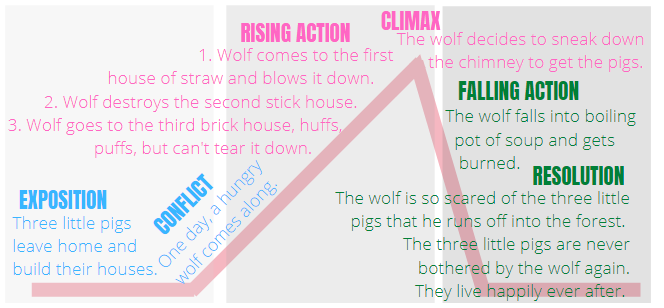
2. Developing Characters and Settings
Narrative writing in involves creating characters that are relatable and dynamic. Develop characters with distinct personalities, motivations, and conflicts. Settings should be vividly described, providing a backdrop that enhances the overall atmosphere of the story. Both characters and settings should contribute to the narrative’s themes and mood. For some useful graphic organizers and resources, click here .
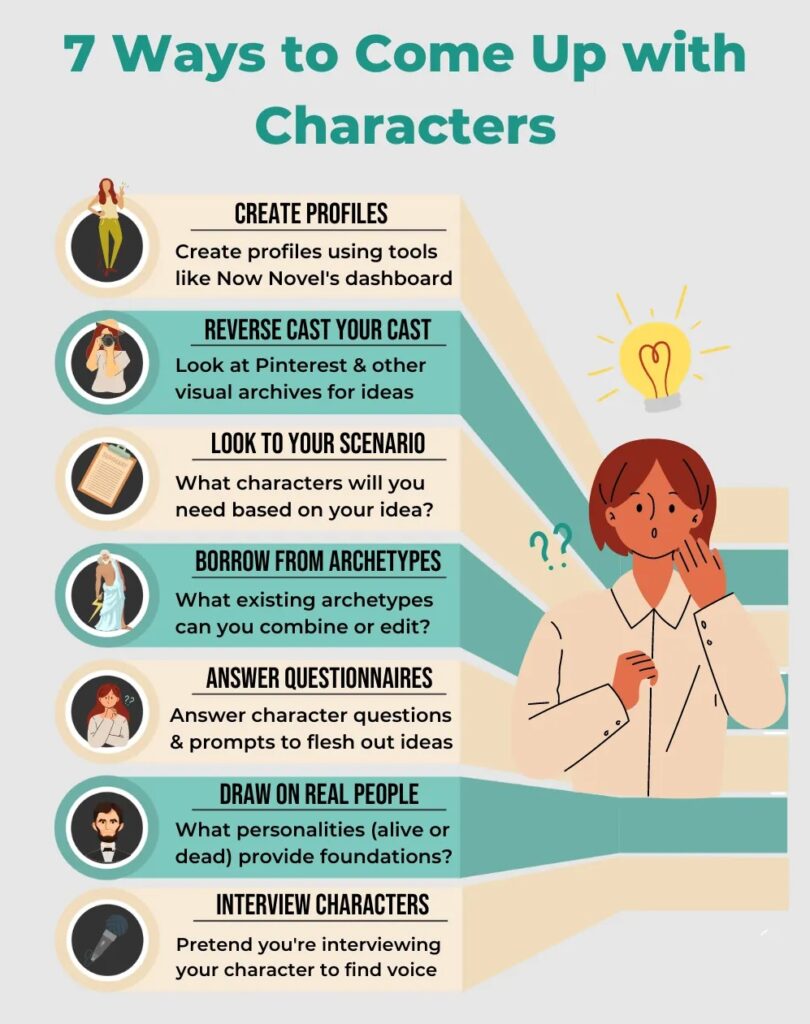
3. Structure
Structure is the framework that holds a narrative together. Narratives should have a clear beginning, middle, and end. Consider how events unfold, ensuring a logical sequence that builds tension and interest. A well-structured narrative helps readers navigate the story smoothly.
4. Creating Dialogues
Dialogues play a crucial role in narrative writing. They bring characters to life and advance the plot. Effective dialogue should be natural, revealing character traits, relationships, and moving the story forward. Use dialogue tags, varied sentence structures, and punctuation to make conversations engaging and authentic.
Context Embedded Grammar
Context-embedded grammar refers to the incorporation of grammatical principles within the broader context of language usage. It emphasizes understanding and applying grammar rules in real-world situations, such as those encountered in reading passages or writing prompts. Rather than treating grammar in isolation, context-embedded grammar acknowledges that effective language use involves considering the nuances of context, audience, and purpose.
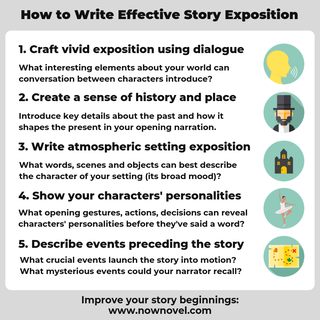
In English Language 1123 examinations, this approach may require students to apply grammatical concepts—such as sentence structure, punctuation, and verb tense—within the specific communicative tasks presented, ensuring that grammatical accuracy aligns seamlessly with the broader language context in which it operates. This approach not only assesses the knowledge of grammar rules but also evaluates the ability to use them effectively within the given linguistic context.
Conclusion:
In conclusion, narrative writing in CIE English Language 1123 is an art that goes beyond storytelling. It demands a nuanced understanding of plot elements, character development, structure, and the use of dialogues. Successful narratives showcase not only language proficiency but also the ability to evoke emotions and sustain reader interest.
The incorporation of context-embedded grammar further emphasizes the practical application of grammatical principles in real-world language use.
Related Posts.
Chapter 19: relationships of organisms with one another and with the environment.
Energy Flow: 1. Principal Source of Energy: 2. Dependence on Photosynthesis: 3. Flow of Energy Through Food Chains and Webs:
Chapter 18: Biotechnology and Genetic Modification
1. Role of Yeast 2. Bacteria in Biotechnology 3. Why Bacteria in Biotechnology 4. Fermenters in Large-Scale Production 5. Enzymes
Chapter 17: Inheritance – Variation
1. Description of Variation: 2. Continuous Variation: 3. Discontinuous Variation: 4. Causes of Variation: 5. Examples of Continuous and Discontinuous

Choose Your Test
Sat / act prep online guides and tips, 3 great narrative essay examples + tips for writing.
General Education

A narrative essay is one of the most intimidating assignments you can be handed at any level of your education. Where you've previously written argumentative essays that make a point or analytic essays that dissect meaning, a narrative essay asks you to write what is effectively a story .
But unlike a simple work of creative fiction, your narrative essay must have a clear and concrete motif —a recurring theme or idea that you’ll explore throughout. Narrative essays are less rigid, more creative in expression, and therefore pretty different from most other essays you’ll be writing.
But not to fear—in this article, we’ll be covering what a narrative essay is, how to write a good one, and also analyzing some personal narrative essay examples to show you what a great one looks like.
What Is a Narrative Essay?
At first glance, a narrative essay might sound like you’re just writing a story. Like the stories you're used to reading, a narrative essay is generally (but not always) chronological, following a clear throughline from beginning to end. Even if the story jumps around in time, all the details will come back to one specific theme, demonstrated through your choice in motifs.
Unlike many creative stories, however, your narrative essay should be based in fact. That doesn’t mean that every detail needs to be pure and untainted by imagination, but rather that you shouldn’t wholly invent the events of your narrative essay. There’s nothing wrong with inventing a person’s words if you can’t remember them exactly, but you shouldn’t say they said something they weren’t even close to saying.
Another big difference between narrative essays and creative fiction—as well as other kinds of essays—is that narrative essays are based on motifs. A motif is a dominant idea or theme, one that you establish before writing the essay. As you’re crafting the narrative, it’ll feed back into your motif to create a comprehensive picture of whatever that motif is.
For example, say you want to write a narrative essay about how your first day in high school helped you establish your identity. You might discuss events like trying to figure out where to sit in the cafeteria, having to describe yourself in five words as an icebreaker in your math class, or being unsure what to do during your lunch break because it’s no longer acceptable to go outside and play during lunch. All of those ideas feed back into the central motif of establishing your identity.
The important thing to remember is that while a narrative essay is typically told chronologically and intended to read like a story, it is not purely for entertainment value. A narrative essay delivers its theme by deliberately weaving the motifs through the events, scenes, and details. While a narrative essay may be entertaining, its primary purpose is to tell a complete story based on a central meaning.
Unlike other essay forms, it is totally okay—even expected—to use first-person narration in narrative essays. If you’re writing a story about yourself, it’s natural to refer to yourself within the essay. It’s also okay to use other perspectives, such as third- or even second-person, but that should only be done if it better serves your motif. Generally speaking, your narrative essay should be in first-person perspective.
Though your motif choices may feel at times like you’re making a point the way you would in an argumentative essay, a narrative essay’s goal is to tell a story, not convince the reader of anything. Your reader should be able to tell what your motif is from reading, but you don’t have to change their mind about anything. If they don’t understand the point you are making, you should consider strengthening the delivery of the events and descriptions that support your motif.
Narrative essays also share some features with analytical essays, in which you derive meaning from a book, film, or other media. But narrative essays work differently—you’re not trying to draw meaning from an existing text, but rather using an event you’ve experienced to convey meaning. In an analytical essay, you examine narrative, whereas in a narrative essay you create narrative.
The structure of a narrative essay is also a bit different than other essays. You’ll generally be getting your point across chronologically as opposed to grouping together specific arguments in paragraphs or sections. To return to the example of an essay discussing your first day of high school and how it impacted the shaping of your identity, it would be weird to put the events out of order, even if not knowing what to do after lunch feels like a stronger idea than choosing where to sit. Instead of organizing to deliver your information based on maximum impact, you’ll be telling your story as it happened, using concrete details to reinforce your theme.

3 Great Narrative Essay Examples
One of the best ways to learn how to write a narrative essay is to look at a great narrative essay sample. Let’s take a look at some truly stellar narrative essay examples and dive into what exactly makes them work so well.
A Ticket to the Fair by David Foster Wallace
Today is Press Day at the Illinois State Fair in Springfield, and I’m supposed to be at the fairgrounds by 9:00 A.M. to get my credentials. I imagine credentials to be a small white card in the band of a fedora. I’ve never been considered press before. My real interest in credentials is getting into rides and shows for free. I’m fresh in from the East Coast, for an East Coast magazine. Why exactly they’re interested in the Illinois State Fair remains unclear to me. I suspect that every so often editors at East Coast magazines slap their foreheads and remember that about 90 percent of the United States lies between the coasts, and figure they’ll engage somebody to do pith-helmeted anthropological reporting on something rural and heartlandish. I think they asked me to do this because I grew up here, just a couple hours’ drive from downstate Springfield. I never did go to the state fair, though—I pretty much topped out at the county fair level. Actually, I haven’t been back to Illinois for a long time, and I can’t say I’ve missed it.
Throughout this essay, David Foster Wallace recounts his experience as press at the Illinois State Fair. But it’s clear from this opening that he’s not just reporting on the events exactly as they happened—though that’s also true— but rather making a point about how the East Coast, where he lives and works, thinks about the Midwest.
In his opening paragraph, Wallace states that outright: “Why exactly they’re interested in the Illinois State Fair remains unclear to me. I suspect that every so often editors at East Coast magazines slap their foreheads and remember that about 90 percent of the United States lies between the coasts, and figure they’ll engage somebody to do pith-helmeted anthropological reporting on something rural and heartlandish.”
Not every motif needs to be stated this clearly , but in an essay as long as Wallace’s, particularly since the audience for such a piece may feel similarly and forget that such a large portion of the country exists, it’s important to make that point clear.
But Wallace doesn’t just rest on introducing his motif and telling the events exactly as they occurred from there. It’s clear that he selects events that remind us of that idea of East Coast cynicism , such as when he realizes that the Help Me Grow tent is standing on top of fake grass that is killing the real grass beneath, when he realizes the hypocrisy of craving a corn dog when faced with a real, suffering pig, when he’s upset for his friend even though he’s not the one being sexually harassed, and when he witnesses another East Coast person doing something he wouldn’t dare to do.
Wallace is literally telling the audience exactly what happened, complete with dates and timestamps for when each event occurred. But he’s also choosing those events with a purpose—he doesn’t focus on details that don’t serve his motif. That’s why he discusses the experiences of people, how the smells are unappealing to him, and how all the people he meets, in cowboy hats, overalls, or “black spandex that looks like cheesecake leotards,” feel almost alien to him.
All of these details feed back into the throughline of East Coast thinking that Wallace introduces in the first paragraph. He also refers back to it in the essay’s final paragraph, stating:
At last, an overarching theory blooms inside my head: megalopolitan East Coasters’ summer treats and breaks and literally ‘getaways,’ flights-from—from crowds, noise, heat, dirt, the stress of too many sensory choices….The East Coast existential treat is escape from confines and stimuli—quiet, rustic vistas that hold still, turn inward, turn away. Not so in the rural Midwest. Here you’re pretty much away all the time….Something in a Midwesterner sort of actuates , deep down, at a public event….The real spectacle that draws us here is us.
Throughout this journey, Wallace has tried to demonstrate how the East Coast thinks about the Midwest, ultimately concluding that they are captivated by the Midwest’s less stimuli-filled life, but that the real reason they are interested in events like the Illinois State Fair is that they are, in some ways, a means of looking at the East Coast in a new, estranging way.
The reason this works so well is that Wallace has carefully chosen his examples, outlined his motif and themes in the first paragraph, and eventually circled back to the original motif with a clearer understanding of his original point.
When outlining your own narrative essay, try to do the same. Start with a theme, build upon it with examples, and return to it in the end with an even deeper understanding of the original issue. You don’t need this much space to explore a theme, either—as we’ll see in the next example, a strong narrative essay can also be very short.

Death of a Moth by Virginia Woolf
After a time, tired by his dancing apparently, he settled on the window ledge in the sun, and, the queer spectacle being at an end, I forgot about him. Then, looking up, my eye was caught by him. He was trying to resume his dancing, but seemed either so stiff or so awkward that he could only flutter to the bottom of the window-pane; and when he tried to fly across it he failed. Being intent on other matters I watched these futile attempts for a time without thinking, unconsciously waiting for him to resume his flight, as one waits for a machine, that has stopped momentarily, to start again without considering the reason of its failure. After perhaps a seventh attempt he slipped from the wooden ledge and fell, fluttering his wings, on to his back on the window sill. The helplessness of his attitude roused me. It flashed upon me that he was in difficulties; he could no longer raise himself; his legs struggled vainly. But, as I stretched out a pencil, meaning to help him to right himself, it came over me that the failure and awkwardness were the approach of death. I laid the pencil down again.
In this essay, Virginia Woolf explains her encounter with a dying moth. On surface level, this essay is just a recounting of an afternoon in which she watched a moth die—it’s even established in the title. But there’s more to it than that. Though Woolf does not begin her essay with as clear a motif as Wallace, it’s not hard to pick out the evidence she uses to support her point, which is that the experience of this moth is also the human experience.
In the title, Woolf tells us this essay is about death. But in the first paragraph, she seems to mostly be discussing life—the moth is “content with life,” people are working in the fields, and birds are flying. However, she mentions that it is mid-September and that the fields were being plowed. It’s autumn and it’s time for the harvest; the time of year in which many things die.
In this short essay, she chronicles the experience of watching a moth seemingly embody life, then die. Though this essay is literally about a moth, it’s also about a whole lot more than that. After all, moths aren’t the only things that die—Woolf is also reflecting on her own mortality, as well as the mortality of everything around her.
At its core, the essay discusses the push and pull of life and death, not in a way that’s necessarily sad, but in a way that is accepting of both. Woolf begins by setting up the transitional fall season, often associated with things coming to an end, and raises the ideas of pleasure, vitality, and pity.
At one point, Woolf tries to help the dying moth, but reconsiders, as it would interfere with the natural order of the world. The moth’s death is part of the natural order of the world, just like fall, just like her own eventual death.
All these themes are set up in the beginning and explored throughout the essay’s narrative. Though Woolf doesn’t directly state her theme, she reinforces it by choosing a small, isolated event—watching a moth die—and illustrating her point through details.
With this essay, we can see that you don’t need a big, weird, exciting event to discuss an important meaning. Woolf is able to explore complicated ideas in a short essay by being deliberate about what details she includes, just as you can be in your own essays.

Notes of a Native Son by James Baldwin
On the twenty-ninth of July, in 1943, my father died. On the same day, a few hours later, his last child was born. Over a month before this, while all our energies were concentrated in waiting for these events, there had been, in Detroit, one of the bloodiest race riots of the century. A few hours after my father’s funeral, while he lay in state in the undertaker’s chapel, a race riot broke out in Harlem. On the morning of the third of August, we drove my father to the graveyard through a wilderness of smashed plate glass.
Like Woolf, Baldwin does not lay out his themes in concrete terms—unlike Wallace, there’s no clear sentence that explains what he’ll be talking about. However, you can see the motifs quite clearly: death, fatherhood, struggle, and race.
Throughout the narrative essay, Baldwin discusses the circumstances of his father’s death, including his complicated relationship with his father. By introducing those motifs in the first paragraph, the reader understands that everything discussed in the essay will come back to those core ideas. When Baldwin talks about his experience with a white teacher taking an interest in him and his father’s resistance to that, he is also talking about race and his father’s death. When he talks about his father’s death, he is also talking about his views on race. When he talks about his encounters with segregation and racism, he is talking, in part, about his father.
Because his father was a hard, uncompromising man, Baldwin struggles to reconcile the knowledge that his father was right about many things with his desire to not let that hardness consume him, as well.
Baldwin doesn’t explicitly state any of this, but his writing so often touches on the same motifs that it becomes clear he wants us to think about all these ideas in conversation with one another.
At the end of the essay, Baldwin makes it more clear:
This fight begins, however, in the heart and it had now been laid to my charge to keep my own heart free of hatred and despair. This intimation made my heart heavy and, now that my father was irrecoverable, I wished that he had been beside me so that I could have searched his face for the answers which only the future would give me now.
Here, Baldwin ties together the themes and motifs into one clear statement: that he must continue to fight and recognize injustice, especially racial injustice, just as his father did. But unlike his father, he must do it beginning with himself—he must not let himself be closed off to the world as his father was. And yet, he still wishes he had his father for guidance, even as he establishes that he hopes to be a different man than his father.
In this essay, Baldwin loads the front of the essay with his motifs, and, through his narrative, weaves them together into a theme. In the end, he comes to a conclusion that connects all of those things together and leaves the reader with a lasting impression of completion—though the elements may have been initially disparate, in the end everything makes sense.
You can replicate this tactic of introducing seemingly unattached ideas and weaving them together in your own essays. By introducing those motifs, developing them throughout, and bringing them together in the end, you can demonstrate to your reader how all of them are related. However, it’s especially important to be sure that your motifs and clear and consistent throughout your essay so that the conclusion feels earned and consistent—if not, readers may feel mislead.
5 Key Tips for Writing Narrative Essays
Narrative essays can be a lot of fun to write since they’re so heavily based on creativity. But that can also feel intimidating—sometimes it’s easier to have strict guidelines than to have to make it all up yourself. Here are a few tips to keep your narrative essay feeling strong and fresh.
Develop Strong Motifs
Motifs are the foundation of a narrative essay . What are you trying to say? How can you say that using specific symbols or events? Those are your motifs.
In the same way that an argumentative essay’s body should support its thesis, the body of your narrative essay should include motifs that support your theme.
Try to avoid cliches, as these will feel tired to your readers. Instead of roses to symbolize love, try succulents. Instead of the ocean representing some vast, unknowable truth, try the depths of your brother’s bedroom. Keep your language and motifs fresh and your essay will be even stronger!
Use First-Person Perspective
In many essays, you’re expected to remove yourself so that your points stand on their own. Not so in a narrative essay—in this case, you want to make use of your own perspective.
Sometimes a different perspective can make your point even stronger. If you want someone to identify with your point of view, it may be tempting to choose a second-person perspective. However, be sure you really understand the function of second-person; it’s very easy to put a reader off if the narration isn’t expertly deployed.
If you want a little bit of distance, third-person perspective may be okay. But be careful—too much distance and your reader may feel like the narrative lacks truth.
That’s why first-person perspective is the standard. It keeps you, the writer, close to the narrative, reminding the reader that it really happened. And because you really know what happened and how, you’re free to inject your own opinion into the story without it detracting from your point, as it would in a different type of essay.
Stick to the Truth
Your essay should be true. However, this is a creative essay, and it’s okay to embellish a little. Rarely in life do we experience anything with a clear, concrete meaning the way somebody in a book might. If you flub the details a little, it’s okay—just don’t make them up entirely.
Also, nobody expects you to perfectly recall details that may have happened years ago. You may have to reconstruct dialog from your memory and your imagination. That’s okay, again, as long as you aren’t making it up entirely and assigning made-up statements to somebody.
Dialog is a powerful tool. A good conversation can add flavor and interest to a story, as we saw demonstrated in David Foster Wallace’s essay. As previously mentioned, it’s okay to flub it a little, especially because you’re likely writing about an experience you had without knowing that you’d be writing about it later.
However, don’t rely too much on it. Your narrative essay shouldn’t be told through people explaining things to one another; the motif comes through in the details. Dialog can be one of those details, but it shouldn’t be the only one.
Use Sensory Descriptions
Because a narrative essay is a story, you can use sensory details to make your writing more interesting. If you’re describing a particular experience, you can go into detail about things like taste, smell, and hearing in a way that you probably wouldn’t do in any other essay style.
These details can tie into your overall motifs and further your point. Woolf describes in great detail what she sees while watching the moth, giving us the sense that we, too, are watching the moth. In Wallace’s essay, he discusses the sights, sounds, and smells of the Illinois State Fair to help emphasize his point about its strangeness. And in Baldwin’s essay, he describes shattered glass as a “wilderness,” and uses the feelings of his body to describe his mental state.
All these descriptions anchor us not only in the story, but in the motifs and themes as well. One of the tools of a writer is making the reader feel as you felt, and sensory details help you achieve that.
What’s Next?
Looking to brush up on your essay-writing capabilities before the ACT? This guide to ACT English will walk you through some of the best strategies and practice questions to get you prepared!
Part of practicing for the ACT is ensuring your word choice and diction are on point. Check out this guide to some of the most common errors on the ACT English section to be sure that you're not making these common mistakes!
A solid understanding of English principles will help you make an effective point in a narrative essay, and you can get that understanding through taking a rigorous assortment of high school English classes !

Melissa Brinks graduated from the University of Washington in 2014 with a Bachelor's in English with a creative writing emphasis. She has spent several years tutoring K-12 students in many subjects, including in SAT prep, to help them prepare for their college education.
Student and Parent Forum
Our new student and parent forum, at ExpertHub.PrepScholar.com , allow you to interact with your peers and the PrepScholar staff. See how other students and parents are navigating high school, college, and the college admissions process. Ask questions; get answers.

Ask a Question Below
Have any questions about this article or other topics? Ask below and we'll reply!
Improve With Our Famous Guides
- For All Students
The 5 Strategies You Must Be Using to Improve 160+ SAT Points
How to Get a Perfect 1600, by a Perfect Scorer
Series: How to Get 800 on Each SAT Section:
Score 800 on SAT Math
Score 800 on SAT Reading
Score 800 on SAT Writing
Series: How to Get to 600 on Each SAT Section:
Score 600 on SAT Math
Score 600 on SAT Reading
Score 600 on SAT Writing
Free Complete Official SAT Practice Tests
What SAT Target Score Should You Be Aiming For?
15 Strategies to Improve Your SAT Essay
The 5 Strategies You Must Be Using to Improve 4+ ACT Points
How to Get a Perfect 36 ACT, by a Perfect Scorer
Series: How to Get 36 on Each ACT Section:
36 on ACT English
36 on ACT Math
36 on ACT Reading
36 on ACT Science
Series: How to Get to 24 on Each ACT Section:
24 on ACT English
24 on ACT Math
24 on ACT Reading
24 on ACT Science
What ACT target score should you be aiming for?
ACT Vocabulary You Must Know
ACT Writing: 15 Tips to Raise Your Essay Score
How to Get Into Harvard and the Ivy League
How to Get a Perfect 4.0 GPA
How to Write an Amazing College Essay
What Exactly Are Colleges Looking For?
Is the ACT easier than the SAT? A Comprehensive Guide
Should you retake your SAT or ACT?
When should you take the SAT or ACT?
Stay Informed
Get the latest articles and test prep tips!
Looking for Graduate School Test Prep?
Check out our top-rated graduate blogs here:
GRE Online Prep Blog
GMAT Online Prep Blog
TOEFL Online Prep Blog
Holly R. "I am absolutely overjoyed and cannot thank you enough for helping me!”
Programmes & Qualifications
Cambridge o level english language (1123).
- Past papers, examiner reports and specimen papers
You can download one or more papers for a previous session. Please note that these papers may not reflect the content of the current syllabus.
Unlock more content
This is only a selection of our papers. Registered Cambridge International Schools can access the full catalogue of teaching and learning materials including papers from 2018 through our School Support Hub .
Past papers
- -->June 2022 Mark Scheme Paper 11 (PDF, 235KB)
- -->June 2022 Mark Scheme Paper 21 (PDF, 264KB)
- -->June 2022 Insert Paper 21 (PDF, 909KB)
Examiner reports
- -->June 2022 Examiner Report (PDF, 2MB)
Specimen papers
- -->2018 Paper 1 Specimen Mark Scheme (PDF, 145KB)
- -->2018 Paper 2 Specimen Insert (PDF, 140KB)
- -->2018 Paper 2 Specimen Mark Scheme (PDF, 165KB)
- -->2024 Paper 1 Specimen insert (PDF, 975KB)
- -->2024 Paper 1 Specimen Mark scheme (PDF, 1MB)
- -->2024 Paper 2 Specimen Mark scheme (PDF, 967KB)
Stay up to date
Sign up for updates about changes to the syllabuses you teach
- Syllabus overview
- Published resources
- No category
English 1123 O Level Example Candidate Responses
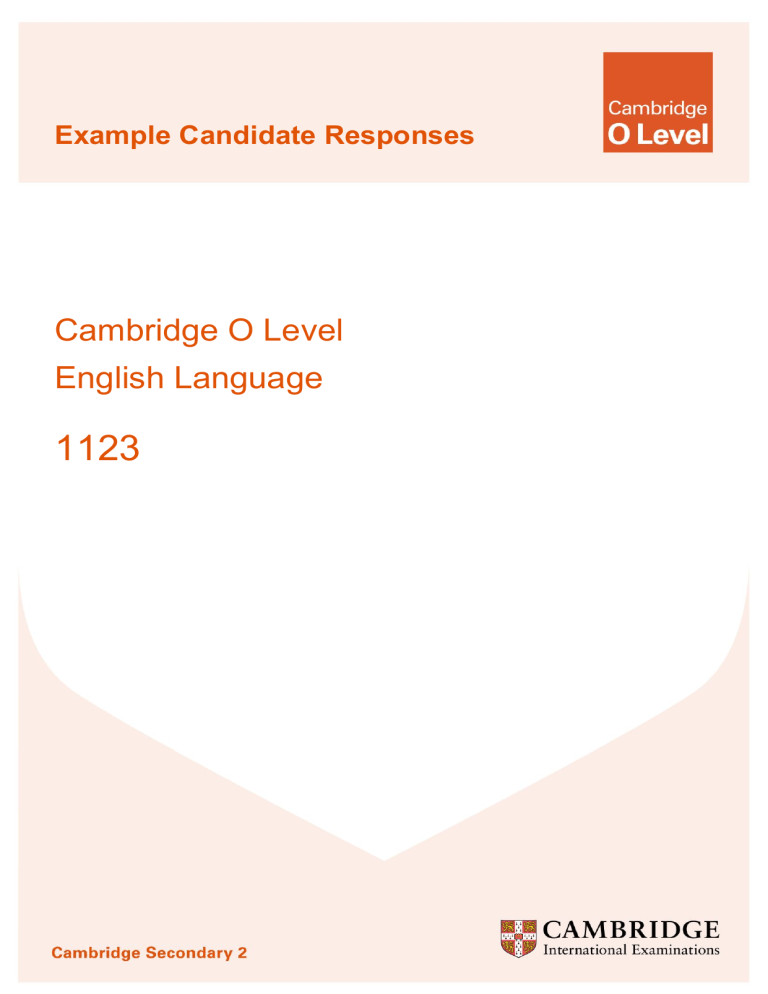
Related documents

Add this document to collection(s)
You can add this document to your study collection(s)
Add this document to saved
You can add this document to your saved list
Suggest us how to improve StudyLib
(For complaints, use another form )
Input it if you want to receive answer
- (65) 9646 0930

7 Essay Types at the O Level
- Posted By Randall Chew
Hello everyone! I’m Mr Ng Guo Liang, an English Language Curriculum Specialist and Teacher at Lil’ but Mighty.
When I was still teaching in a secondary school, I often had to address many questions — from both parents and students alike — about the different composition or essay types being tested in the O Level examinations; chief amongst which were:
– What composition or essay types will appear in the O Level examinations? – What is the difference between a discursive essay and an argumentative essay? – What is the difference between a recount and narrative essay? – What is the difference between a descriptive and reflective essay?
There were (and are) of course, many other questions pertaining to composition writing for the O Level. The ones above however — those concerned with conceptualising the types of compositions — are the ones I have had to address the most. In this blog post therefore, I will list the various types of compositions that could be tested in the O Level English Language Paper 1, and attempt to very briefly describe each of them.
Before I continue, I must make a disclaimer. This post is not meant to be a comprehensive set of notes or guide detailing and explaining each individual essay type, their features, and nuances. I must make it very clear to my readers that what I write and elaborate on in this post should not be taken as the absolute and definitive word on the various essay types; we should note that different teachers, authors, publishers, and reference materials describe, explain, and conceptualise the various essay types differently (and very possibly with different terminology). That being said, the descriptions I’ll make in this post are meant only as a very brief explanation of the various types of essays so that you can better understand what they generally require students to address in the examination.
Should you wish to enquire about and discuss the individual essay types at a more comprehensive and deeper level than that provided in this post, you can do so with your English teacher in school, or contact us and we shall endeavour to address your queries!
In the O Level examination, the following essay types could be tested:
1. Narrative 2. Personal Recount 3. Descriptive 4. Reflective 5. Discursive 6. Argumentative 7. Two-Part Essays
1. Narrative Essays

Narrative essays, as the name suggests, are essays that narrate a story. Most students reading this post should, by the end of primary school, be familiar with narrative essays as this is perhaps the essay type that they see the most in primary school and in creative writing classes. These essays are generally fictional in nature, and adhere to how narrative stories are developed in terms of their plots (beginning —> build up —> climax —> events that lead to a resolution —> a resolution —> and a coda/conclusion). Although these essays are generally fictional, that is not to say that students cannot use their own experiences to address the question. As long as the experience is relevant to the question, and features a rising plot which leads to a resolution, students are free to use their own experiences to inspire the narrative essay.
Sample questions:
– Freedom. – A challenge. – Write a story about kindness. – ‘It was my proudest moment.’ Write a story based on this.
2. Personal Recount Essays

Similar to a narrative essay, a personal recount essay retells a series of events that should be written in a linear and sequential manner. A personal recount essay is not to be confused with a narrative one. Narratives are often fictional in nature, and generally adhere to a rising plot development structure (most often with a climax and resolution). Personal recounts however, are not fictional in nature, and often relate to an event or experience which is meaningful or memorable to you (in other words, you should have personally experienced or witnessed this event or experience taking place.) Depending on the question asked, it can, of course, include a plot structure with elements similar to a narrative. However, unlike narrative essay writing, it does not require students to adhere strictly to a rising plot structure.
Personal recount essays, by nature of the questions given, typically require students to include an element of reflection. This usually focuses on the impact and significance that an event or experience have on them, and their thoughts, feelings, changing beliefs and attitudes as the series of events unfold. Such reflections should be interspersed and woven in and between the paragraphs of the essay. This is different for narratives, where reflections typically appear in the coda.
– Write about an interesting day out with your family. – Write about a mistake you regret making. – Write about how you conquered one of your fears. – Write about a task which turned out to be more difficult than you initially thought. – Write about a time a great act of kindness took place.
3. Descriptive Essays

Descriptive essays contain and emphasise descriptive elements. That is to say, such essays are written to appeal to the five senses, and should create vivid mental images for the reader when it is being read. This genre goes beyond describing physical attributes, but abstract ones as well (e.g. feelings, ideas, or a situation), and often involves reflecting on why something or someone is special or important. Unlike narrative essays, descriptive essays do not require a plot structure or storyline. This essay type most typically require students to write about and describe in detail one of the following topics:
1. An object 2. A person 3. A place 4. An event or incident 5. An experience
– Describe an individual who has had a great influence on you. – Describe a memorable celebration. – Describe your typical day in school. – Describe an object which you hold dear.
4. Reflective Essays

Essays of this genre require the students to reflect on themselves. Despite the reflective element, this is not to be confused with a personal recount. Personal recounts require students to recount and reflect on an event or experience which actually took place. Reflective essays however, are not about an event or experience, but are more about the students themselves.
Reflective essays typically require students to reflect on and make observations about their own personality and character. As such, it is more philosophical and insightful in nature.
Sample Questions:
– What would you consider to be your best and worst qualities? – What is your idea of a perfect day? – What are the type of books you enjoy reading? – Write about some of the things you value most in life.
Expository Essays: Argumentative and Discursive Essays
The next two essay types fall under the category we call ‘expositions’. An expository essay is one that explores and considers in depth the different aspects and perspectives to a particular topic or subject matter. We typically see two types of expository essays appearing in the O Level examination: argumentative and discursive essays.
5. Argumentative Essays

In an argumentative essay, students are typically given an issue, topic, or subject matter on which they are supposed to take a clear stand, and argue for that stand they have taken. This essay type is ‘biased’ in that regard, and the aim of the essay is to persuade the reader, with the strength of their points and arguments, that the stand taken in the essay is the right one.
1. The key features of an effective argumentative essay are: 2. There must be a very clear stand taken on the topic/subject matter given in the question. 3. Points/arguments given are supported by facts, statistics, observations or examples. 4. Points/arguments appeal to logic and emotion. 5. Using a persuasive tone and register. 6. Considering the opposing views and being able to rebut or refute them – this makes an argumentative essay the most persuasive and effective.
– ‘People can only be happy if they feel they are treated fairly.’ Do you agree (2019 O Level 1) – Do you agree with the view that students should never engage in part-time work? – ‘Social media has destroyed communication.’ What is your opinion? – Who has more problems to deal with — adults or youths?
6. Discursive Essays

Like argumentative essays, a discursive essay focuses on and concerns itself with one particular topic or subject matter. Unlike the argumentative essay however, one is not required to take a stand on the subject matter. Rather than pushing for and validating only one particular perspective, students are required instead to discuss and explore the multiple perspectives regarding the subject matter in an unbiased manner.
What is important to note is that students can state a preference for a particular perspective or viewpoint at the end of the essay, but the tone and register of the essay should not be a persuasive one (i.e. the way the essay is written should not dominantly favour one particular perspective or viewpoint over others). It should be written in a manner which reflects that all the perspectives and viewpoints you discuss in the essay are equally valid (even if you do eventually state a preference for one at the end) — in essence, an effective discursive essay is one that achieves balance .
– What are the advantages and disadvantages of social media? – What are the qualities a good leader should have? – Discuss the implications of making home-based learning a permanent mode of education. – Discuss your views on discipline.
7. Two-Part Essays

As the name suggests, two-part essays are essays which could comprise features and elements of two different essay types. What you will typically see is a question which explicitly has two distinct and separate parts students would have to address. For instance, the question would not only require students to describe something or someone, but also require them to reflect on that particular thing they are describing in the essay; such that the essay becomes a ‘mixed-genre’ essay.
For two-part essays, students need to ensure that they address both parts of the question, and do not make the common mistake of devoting too much time and too many words to the first half of the question and neglecting the second half of the question.
– Write about a mistake you regret making. What lessons did you learn from it? – Describe an individual who has had a great influence on you. Why is this person so special to you? – Describe an object which you hold dear. Why is this object so important to you? – Write about a time you were misunderstood by others. How did you feel?
This brings us to the end of this blog post. Although there is much more to the respective essay types regarding their features and styles, I hope that I have managed to provide you with brief but lucid explanations that will make it a little easier for you to understand the various essay types that could be tested in the O Level.
Until my next post, and on behalf of the Lil’ but Mighty family, stay happy, stay safe, and stay healthy!
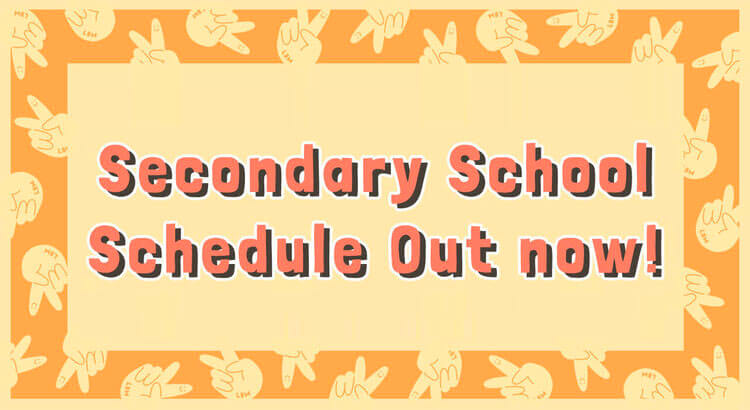
- Fine Out More

Mr Ng firmly believes that there is a strong correlation between effort and eventual success, and that finding success in English is something that is attainable by all of his students regardless of their background and starting point. He has a strong love and passion for the language and hopes to inspire that same passion in his students through his lessons. That being said, he looks forward to bringing out the best in his students and guiding them to fulfil the potential they all have.
Have something to share? Drop us a comment below!
Leave a reply.
You must be logged in to post a comment.
Other related posts

Creative Writing | 3 Easy Steps to Write Your Own Haiku!
- Creative Writing & Compo
Verbs: More than Just Action Words! | Part 3: Changes in Verb Forms
Ketchup on english – is, are, was and were.
- Grammar , Lower Primary
Audience In Visual Text | Visual Text Comprehension
- Visual Text Comprehension
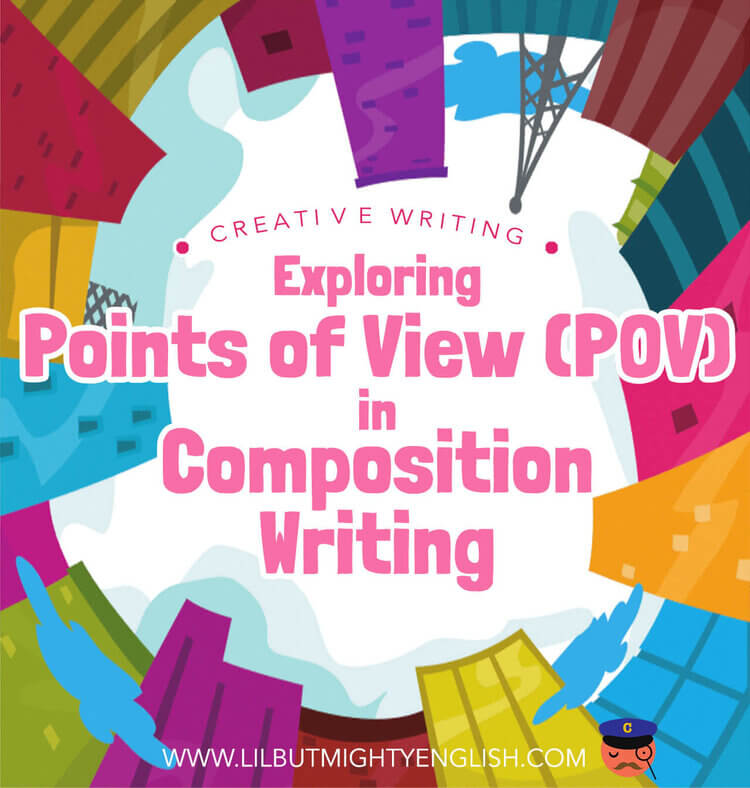

Exploring Points of View (POV) in Composition Writing
Metaphors for | part ii – implied metaphors.

10 Beautiful Vivid Verbs to Boost Your Writing and Oral! | Primary School English
- Creative Writing & Compo , Oral
Metaphors For? | Part I – An Introduction to Metaphors

3 Family-Friendly Shows on Netflix (Educational & Entertaining)!
- English in the real world
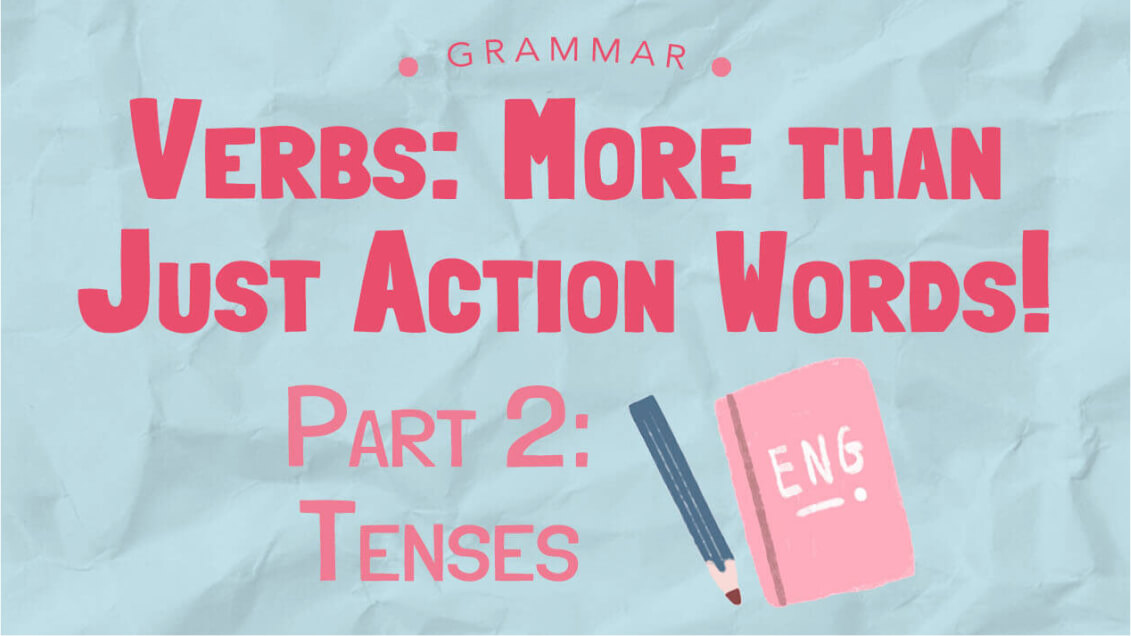
Verbs: More than Just Action Words! | Part 2: Tenses
2021 father’s day contest winners.
- Company News
Verbs: More than Just Action Words! | Part 1: Subject-Verb Agreement

10 Beautiful Words You Can Use in Narrative / Descriptive Writing | Secondary School
- Secondary School English

Ways To Create A Well-Rounded Character | Creative Writing
Understanding purpose-related questions in visual text comprehension.

How Playing Video Games Can Improve Our English (With Practical Tips for Parents!)

Primary School Composition | Onomatopoeia – What’s That?
2021 mother’s day contest winners + our founder’s journey (mother’s day special).
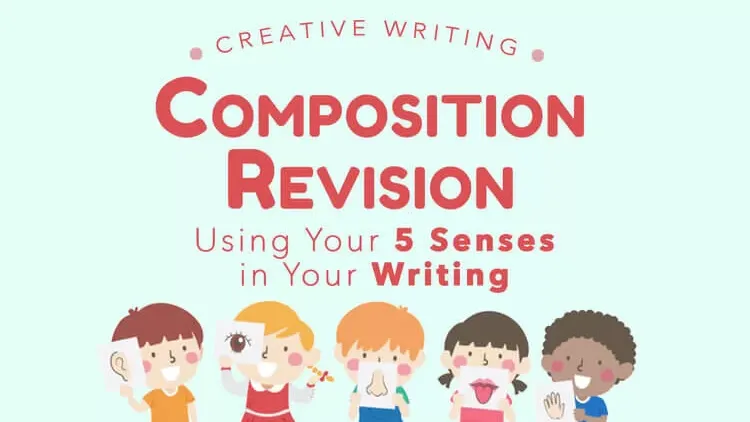
Composition Revision: Using Your 5 Senses in Your Writing
How to create a dynamic piece of writing using idioms, ketchup on english – subject-verb agreement, punctuation marks: colon vs. semicolon.

4 steps to Create Suspense

Earth Hour – Oral Topic
That simile though 2 | using stronger similes.

5 Fun Activities to Become Better at Listening Comprehension!
- Listening Comprehension , Secondary School English

PSLE ORAL | Compiled Prelim 2021 Oral Topics + Questions!
- Free Downloads , Oral
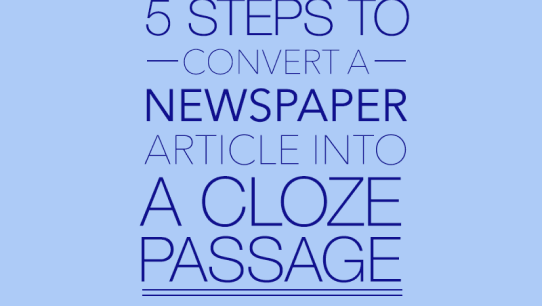
5 Steps to Convert a Newspaper Article into a Cloze Passage
- Cloze Passage and Editing , Free Downloads , Primary School English

PSLE English | Oral Conversation: Free SG50 Sample Practice + Model Answers
- Free Downloads , Oral , Primary School English

PSLE English | Oral Conversation: Filling your Story with Details Easily + Free Revision Cards
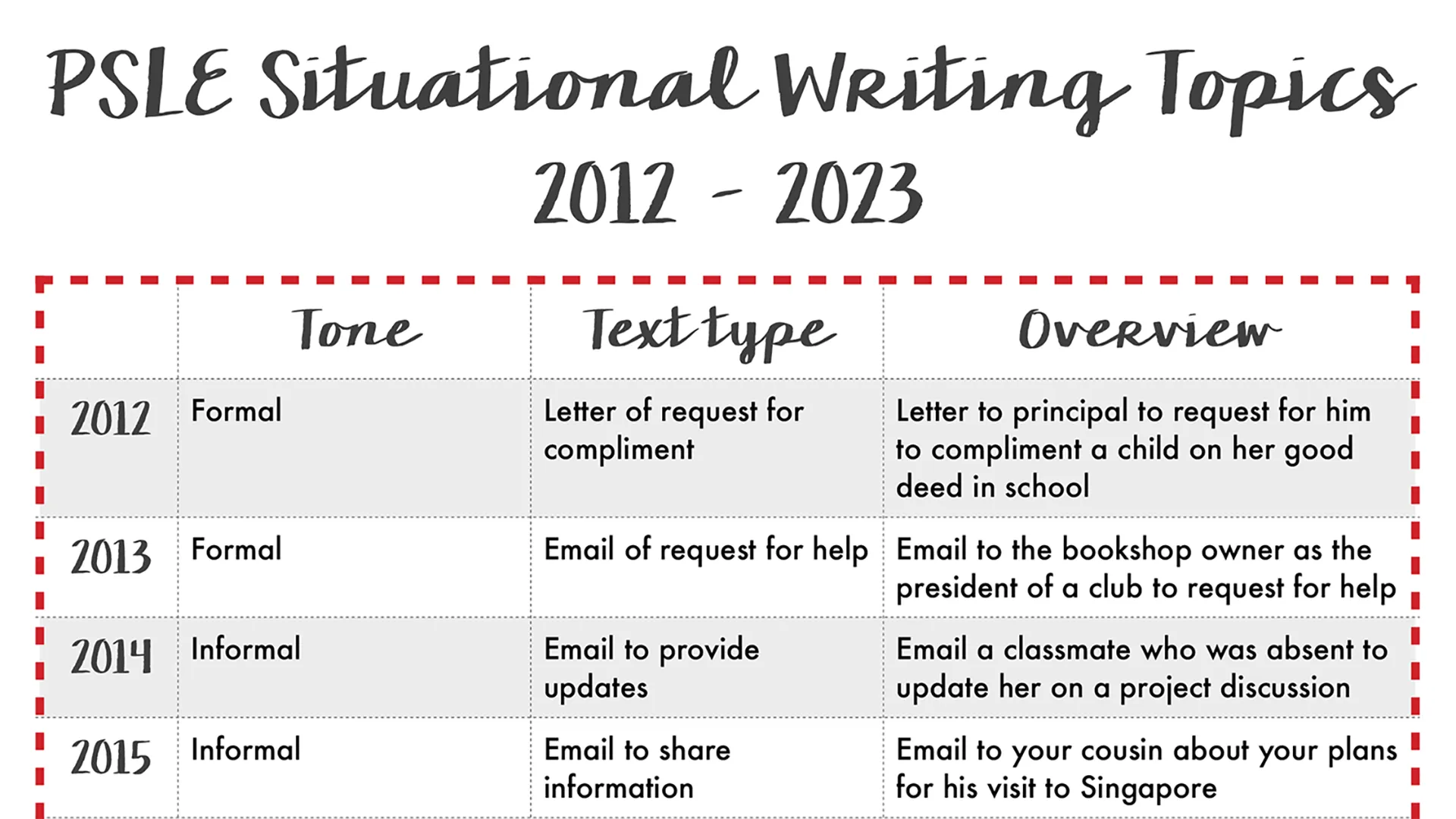
PSLE English | Situational Writing: Q&A + Formal vs Informal Writing Comparison Chart
- Free Downloads , Primary School English , Situational Writing

PSLE English Tips | Oral: Stimulus-Based Conversation Checklist

A Little Encouragement | DIY Motivational Bookmark (Easy to personalise too!)
- English in the real world , Free Downloads , Reading

Situational Writing: Step-by-Step Guide + Free Revision Card

I Love Reading | 5 Ways to Motivate Reluctant Readers
- English in the real world , Free Downloads

PSLE English | Printable Ultimate Grammar & Synthesis Summary
- Free Downloads , Grammar , Sentence Synthesis
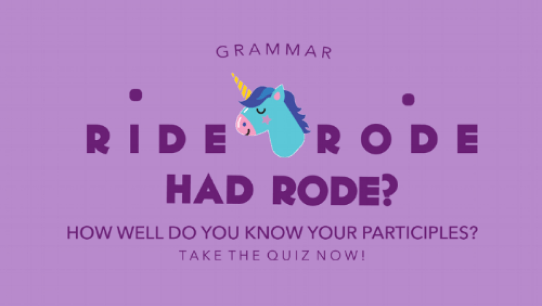
How Well Do You Know Your Past Participles?
- Free Downloads , Grammar

Primary Composition Writing | Starting Sentences with Introductory Clauses
- Creative Writing & Compo , Free Downloads

The Sentence Train | Lower Primary English

PSLE English Tips | Oral: Reading Checklist
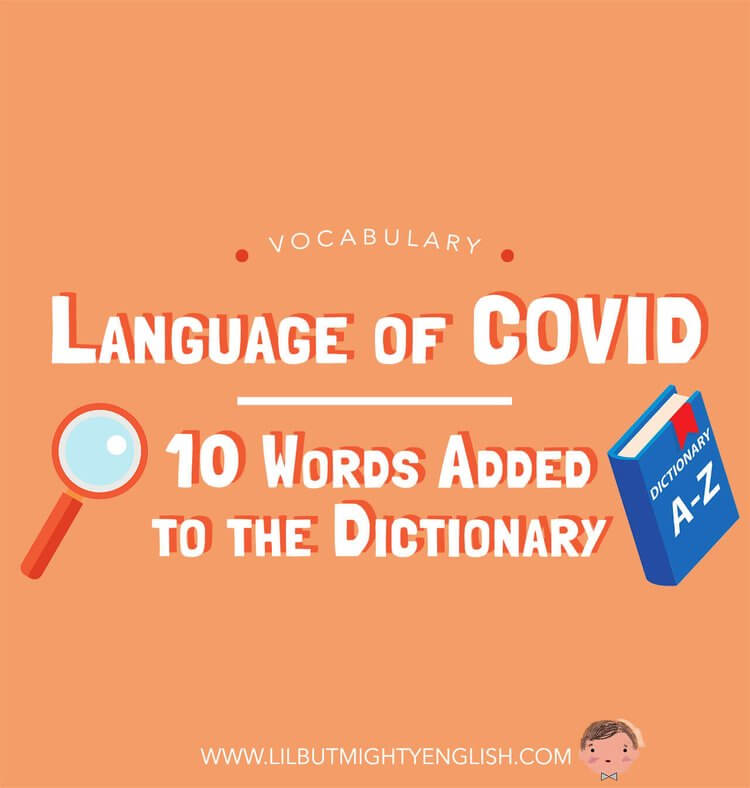
Language of COVID | 10 Words Added to the Dictionary
- English in the real world , Vocabulary

Using Personification to Show, Not Tell!
- Creative Writing & Compo , Primary School English
Expressing Character Feelings Too! | Using Show-Not-Tell (Part 2)
How to choose a book to read: 8 ways.

How to Dress Up A Boring Paragraph | Creative Writing
Ketchup on english – halloween special: prepositions of time.
- Lower Primary
Ketchup on English! – Verbs Are Not Just Action Words!

Expressing Character Feelings | Using Show-Not-Tell
Which picture should i use | choosing the best picture to use for composition.

Oral: Reading Passage | Long Vowels – Have You Been Reading Your Vowels Correctly?
Like what you are reading.
Subscribe now to receive news and tips hot off the press!
The greatest joy in giving small group tuition is a teacher’s ability to create greater impact in the children that have been entrusted to her care.
Our Programmes
- Primary English
- Secondary English
- Self-Paced Online Courses
- School Clients
- Copyright Terms & Conditions
- Personal Data Protection Policy
- Registration Terms & Conditions
- Contest Terms & Conditions
Lil’ but Mighty Clementi Block 432 Clementi Avenue 3, #01-282, Singapore 120432
Lil’ but Mighty Bukit Timah 170 Upper Bukit Timah Road, #B2-02 Bukit Timah Shopping Centre, Singapore 588179
Lil’ but Mighty Hougang Block 211 Hougang Street 21, #01-305 (Back entrance), Singapore 530211
Lil’ but Mighty Novena 1 Goldhill Plaza, #02-25, Singapore 308899
Lil’ but Mighty Marine Parade 1 Marine Parade, #04-05 Parkway Centre, Singapore 449408
Lil’ but Mighty Tampines 3 Tampines Central 1, #06-03 Tampines Plaza 1, Singapore 529540
Narrative Essay
Narrative Essay Examples
10+ Interesting Narrative Essay Examples Plus Writing Tips!
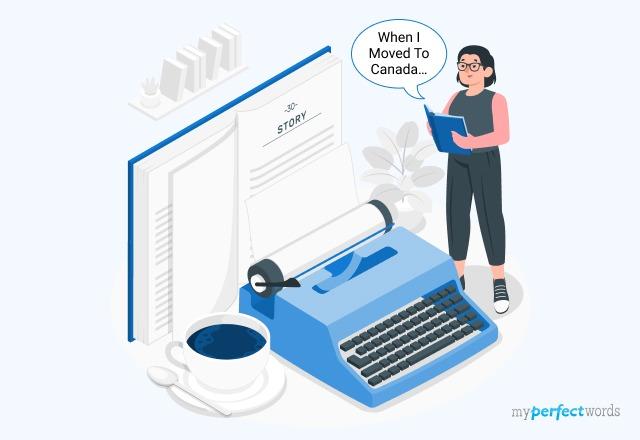
People also read
Narrative Essay - A Complete Writing Guide with Examples
Writing a Personal Narrative Essay: Everything You Need to Know
Best Narrative Essay Topics 2023 for Students
Crafting a Winning Narrative Essay Outline: A Step-by-Step Guide
Many students struggle with crafting engaging and impactful narrative essays. They often find it challenging to weave their personal experiences into coherent and compelling stories.
If you’re having a hard time, don't worry!
We’ve compiled a range of narrative essay examples that will serve as helpful tools for you to get started. These examples will provide a clear path for crafting engaging and powerful narrative essays.
So, keep reading and find our expertly written examples!
- 1. Narrative Essay Definition
- 2. Narrative Essay Examples
- 3. Narrative Essay Examples for Students
- 4. Narrative Essay Topics
- 5. Narrative Essay Writing Tips
Narrative Essay Definition
Writing a narrative essay is a unique form of storytelling that revolves around personal experiences, aiming to immerse the reader in the author's world. It's a piece of writing that delves into the depths of thoughts and feelings.
In a narrative essay, life experiences take center stage, serving as the main substance of the story. It's a powerful tool for writers to convey a personal journey, turning experiences into a captivating tale. This form of storytelling is an artful display of emotions intended to engage readers, leaving the reader feeling like they are a part of the story.
By focusing on a specific theme, event, emotions, and reflections, a narrative essay weaves a storyline that leads the reader through the author's experiences.
The Essentials of Narrative Essays
Let's start with the basics. The four types of essays are argumentative essays , descriptive essays , expository essays , and narrative essays.
The goal of a narrative essay is to tell a compelling tale from one person's perspective. A narrative essay uses all components you’d find in a typical story, such as a beginning, middle, and conclusion, as well as plot, characters, setting, and climax.
The narrative essay's goal is the plot, which should be detailed enough to reach a climax. Here's how it works:
- It's usually presented in chronological order.
- It has a function. This is typically evident in the thesis statement's opening paragraph.
- It may include speech.
- It's told with sensory details and vivid language, drawing the reader in. All of these elements are connected to the writer's major argument in some way.
Before writing your essay, make sure you go through a sufficient number of narrative essay examples. These examples will help you in knowing the dos and don’ts of a good narrative essay.
It is always a better option to have some sense of direction before you start anything. Below, you can find important details and a bunch of narrative essay examples. These examples will also help you build your content according to the format.
Here is a how to start a narrative essay example:
Sample Narrative Essay
The examples inform the readers about the writing style and structure of the narration. The essay below will help you understand how to create a story and build this type of essay in no time.
Here is another narrative essay examples 500 words:
Narrative Essay Examples for Students
Narrative essays offer students a platform to express their experiences and creativity. These examples show how to effectively structure and present personal stories for education.
Here are some helpful narrative essay examples:
Narrative Essay Examples Middle School
Narrative Essay Examples for Grade 7
Narrative Essay Examples for Grade 8
Grade 11 Narrative Essay Examples
Narrative Essay Example For High School
Narrative Essay Example For College
Personal Narrative Essay Example
Descriptive Narrative Essay Example
3rd Person Narrative Essay Example
Narrative Essay Topics
Here are some narrative essay topics to help you get started with your narrative essay writing.
- When I got my first bunny
- When I moved to Canada
- I haven’t experienced this freezing temperature ever before
- The moment I won the basketball finale
- A memorable day at the museum
- How I talk to my parrot
- The day I saw the death
- When I finally rebelled against my professor
Need more topics? Check out these extensive narrative essay topics to get creative ideas!
Narrative Essay Writing Tips
Narrative essays give you the freedom to be creative, but it can be tough to make yours special. Use these tips to make your story interesting:
- Share your story from a personal viewpoint, engaging the reader with your experiences.
- Use vivid descriptions to paint a clear picture of the setting, characters, and emotions involved.
- Organize events in chronological order for a smooth and understandable narrative.
- Bring characters to life through their actions, dialogue, and personalities.
- Employ dialogue sparingly to add realism and progression to the narrative.
- Engage readers by evoking emotions through your storytelling.
- End with reflection or a lesson learned from the experience, providing insight.
Now you have essay examples and tips to help you get started, you have a solid starting point for crafting compelling narrative essays.
However, if storytelling isn't your forte, you can always turn to our essay service for help.
Our writers are specialists who can tackle any type of essay with great skill. With their experience, you get a top-quality, 100% plagiarism-free essay everytime.
So, let our narrative essay writing service make sure your narrative essay stands out. Order now!

Write Essay Within 60 Seconds!

Caleb S. has been providing writing services for over five years and has a Masters degree from Oxford University. He is an expert in his craft and takes great pride in helping students achieve their academic goals. Caleb is a dedicated professional who always puts his clients first.

Paper Due? Why Suffer? That’s our Job!
Keep reading

Get Free Trial Class

2019 O Level Model Essay
‘it was my proudest moment.’ write about a time when you felt like this..
2019 O Level English Examination Question
I was the last speaker to deliver my speech in the room. Our school team sat just a meter or so away, so nervous I could physically feel anxiety radiating from them. Every painful hour of training we submitted ourselves to was for this moment. So far, it had gone well: we had trounced so many of the so-called elite debate teams, cementing our status as the underdog. No one expected a team of seemingly-quiet girls to have come this far, but here we were, in the finals, against a team that had won the championship for ten years in a row.
Our coach held our hands tightly as we walked towards the lecture theatre where the results would be announced, reassuring us that we did well, and that accomplishing a guaranteed silver medal was still good enough. However, secretly in our heart of hearts, we hoped we would take the gold. Otherwise, what was all that training for?
I was so nervous I kept quiet, feeling the sweat trickle down the back of the school’s formal uniform that was set apart for only students who participate in the most prestigious competitions. My tie suddenly felt tight and uncomfortable, but I did not dare to loosen it and sully our image. Walking into the blessed air-conditioning of the lecture theatre, we sat down and awaited our fate. Unfortunately, we were seated next to our competitors, who kept pointing at us and laughing condescendingly, as if they were expecting the win.
“And the winner of the Singapore Debating Championships is…”
He trailed off into silence but I swore you could hear our collective hearts pounding in sheer anxiety.
When he cried out our school name, I could not even react. It was like an absolute dream when everyone started bursting into tears of joy, while I stared, stunned, until I finally realised what happened. We won. The underdogs won. We, the quiet, unassuming team that had just barely made it to this high-level division via the qualifiers won. Our competitors looked disgusted and refused to shake our hands, choosing instead to cast us looks of disdain.
It was then my team and I stepped forward with courage we never knew we had, and turned around to face our opponents.
“You will display proper gentlemanly behaviour and sportsmanship, or you will forever be known as bad losers,”
I managed to say, as politely as I could, even though I wanted to scream inside me. Staring them directly in the eye even though I was at least a head shorter than them, I refused to break my gaze.
Finally, they looked away, then embarrassedly stuck out their hands.
That was when I felt the proudest of myself and of my team. It was not the gold medal that went around our necks, not the championship trophy that we got to bring home, but the act of standing up against people who truly believed we would not make it. We had struggled through so much to make it this far and we deserved that respect. Even though we had to demand it, I still proudly reached out and shook their hands. From that day on, we would not just be known for our debating prowess, but for the fact that even though we seemed like pushovers, we were incredibly strong. Our gold medals shone brightly under the lights, but our faces and spirits shone ever brighter.
Total: 572 words
Teacher’s Commentary
- Building Tension We knew we were going to have fun with this question! We wanted to build up the tension and have it culminate at the point where we could describe where the writer was at her proudest.
- Championship Setting We picked a championship setting because it was the most relatable setting. We thought of setting it up so that it would seem that we were proudest because our hard work had won us the tournament.
- Competitor vs Home Team It was important to show the build-up as to how and why we were so proud. So, we developed the contrast between the main team and the competitor’s team.
- The Twist The climax was not the win as expected, but rather the moment where their characters were tested. Since the main team of the story was described as quiet and unassuming, speaking up against the more arrogant competitor’s team would be a surprise that no one would expect in the story.
- Reflection Finally, it was important to have some reflection as to why that was the proudest moment. This part would differentiate this writing from other students who chose the same 2019 O Level English examination topic. While other students would write about hard work paying off, we would talk about standing up for ourselves.
Get better English grades in the new syllabus
Master O Level English exam strategies that matter for secondary 1 to 4 students. With only 4 to 8 students in each class , students get maximum teacher’s attention.
Sign up for a $20 trial lesson to experience one of our classes.

Dear English Warriors,
We hope this blog post has been helpful to you.
If you don’t want to miss out new English tips, be sure to subscribe to our newsletter below.
To your success, The English Mastery Team
Similar Articles

12 Useful Vocabulary Phrases for Christmas

Do you find your child’s English syllabus too advanced?

5 Fun Ways to Improve Your English After the Exams
UEN 201937593E
Call/text us at 8709 7859
Visit our Facebook Page
Want Our Students' Model Essays?
Read A+ essays written by our students from different Secondary Schools all over Singapore.
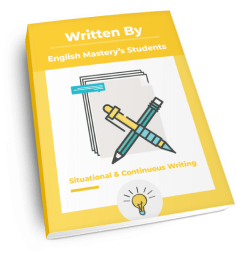
Copyright 2023 EnglishMastery.SG, All Rights Reserved. Privacy Policy & Terms
English Mastery helped me improved my grades, transforming my composition from a B4 to an A1 . The teacher is kind, encouraging, and understanding, creating a fun and engaging learning environment. Weekly classes are eagerly anticipated, with helpful notes and examples provided. Their focus on positive examples boosts learning , and their dedication to making lessons enjoyable is commendable. Highly recommend attending English Mastery lessons!
Ng Pei Xuan, Parent Certified Google Review
English Mastery’s dedication and in-house worksheets have led to notable improvement in my son’s English results . Their detailed progress reports identify strengths, weaknesses, and suggestions for improvement. Easy communication through their WhatsApp account adds to their helpful and friendly approach . Grateful for English Mastery’s support!
A C , Parent Certified Google Review
English Mastery provides valuable guidance for GCE ‘O’ level English. With ample resources and support, my son achieved a three-grade improvement, going from C5 to distinction . Grateful for English Mastery’s impact. Their engaging online lessons and timely feedback enhance skills and overcome challenges.
Isnarte Nordin, Parent Certified Google Review

O-LEVEL PAST YEARS COMPOSITION QUESTIONS
In our ‘O’ Level English Enrichment Programme, we ensure that our graduating students are ready to ace the English Language examination. It is a race against time to prepare for the ‘O’ Levels, hence our programme focuses on teaching and reinforcing our students’ essay writing skills, comprehension answer precision, summary writing and oral examination techniques. All W@W secondary teachers spare no effort in coaching our students how to tackle popular examination essay topics.
HALL OF FAME
Janice glanced worriedly at her wrist watch. The time was already ten past seven. She had twenty minutes to make it to school on time. The sky was overcast. A slight drizzle rained down like a mist. It started raining cats and dogs as Janice reached the bus stop. She had ignored her mother’s advice to take an umbrella with her. She wondered how she was going to make itto school in the rain.
Jovan Ang, Primary 2
Rulang Primary School
It was an idyllic Saturday morning. Fluffy white clouds hung in the clear cerulean sky. Granny Lucy was tottering to the market. Her heart was filled with light-hearted cheer and her mouth curled into a smile. She was looking forward to preparing a feast for her grandchildren, who were coming for dinner that night.
Kew Ling Wei, Primary 3
Raffles Girls’ Primary School
TESTIMONIALS
I am amazed at the depth of vocabulary my child has amassed since attending W@W. She has become a much more confident writer and can now write a full story with ease. She loves coming to lessons
Mr Calvin Tang
Parent of our Primary 3 student

OUR CENTRES
320 Clementi Ave 4 #01-15/27 Singapore 120320 (See Map )
OPENING HOURS
Monday – Friday: 11.00am to 7.00pm Saturday – Sunday: 9.00am to 6.00pm
WR!TERS@WORK PROGRAMMES
- O-level English Enrichment Programme (For Sec 3&4)
- Secondary English Enrichment Programme (For Sec 1&2)
- PSLE WRITING Programme
- Primary 6 English Enrichment Programme
- Primary 5 WRITING Programme
- Primary 5 English Enrichment Programme
- Primary 4 WRITING Programme
- Primary 3 WRITING Programme
- Primary 2 WRITING & English Programme
- Primary 1 WRITING & English Programme
- Junior WRITING Programme
Call us: 6774 2618 / 9684 3373 WhatsApp us: 8404 9281
Join the W@W community!

559 Bukit Timah Road #01-02B King’s Arcade Singapore 269695 (See Map )
Monday – Friday: 11.00am to 7.00pm Saturday – Sunday: 9.00am to 6.00pm
Call us: 6463 6718 / 8600 2778 WhatsApp us: 8404 9281
728 Ang Mo Kio Ave 6 #01-4220, Singapore 560728 (See Map )
Monday – Friday: 11.00am to 7.00pm Saturday – Sunday: 9.00am – 6.00pm
Call us: 6250 1906 / 8600 3815 WhatsApp us: 8404 9281
1 Marine Parade Central Parkway Centre #10-08 Singapore 449408 (See Map )
Monday – Tuesday and Thursday – Friday: 11.00am to 7.00pm Saturday – Sunday: 9.00am to 6.00pm Wednesday: CLOSED
Call us: 6243 3236 / 8600 3420 WhatsApp us: 8404 9281
300 Tampines Ave 5 #05-08 Tampines Junction Singapore 529653 (See Map )
Monday – Wednesday and Friday: 11.00am to 7.00pm Saturday – Sunday: 9.00am to 6.00pm Thursday : CLOSED
Call us: 6223 0125 / 8668 1924 WhatsApp us: 8404 9281
Ci Yuan Community Centre 51 Hougang Ave 9 #03-02 Singapore 538776 (See Map )
Monday – Friday : 11.00am to 7.00pm Saturday : 9.00am to 6.00pm Sunday : CLOSED
Call us: 6214 9359 / 8600 0498 WhatsApp us: 8404 9281
298 Tiong Bahru Road #06-02 Central Plaza Singapore 168730 (See Map )
Monday, Wednesday – Friday: 11.00am to 7.00pm Saturday: 9.00am to 6.00pm Tuesday and Sunday: Closed
Call us: 8600 5534 WhatsApp us: 8404 9281
Blk 284 Bishan St 22 #01-207 Singapore 570284 (See Map )
Monday – Friday: 11.00am to 7.00pm Saturday – Sunday: 9.00am to 6.00pm
Call us: 8600 0737 WhatsApp us: 8404 9281
12 Kallang Ave Aperia Mall, #03-02 Singapore 339511 (See Map )
Call us: 8600 9441 WhatsApp us: 8404 9281
+65 6774 2618 / 9684 3373
Monday - Wednesday: 11.00am to 7.00pm Thursday - Friday: 2.00pm to 9.00pm Saturday - Sunday: 9.00am to 6.00pm
559 Bukit Timah Road #01-02B King's Arcade Singapore 269695 (See Map )
+65 6463 2956 / 8600 2778
+65 62501906 / 8600 3815
+65 62433236 / 8600 3420
+65 86681924
Monday - Wednesday: 11.00am to 7.00pm Thursday - Friday: 2.00pm to 7.00pm Saturday - Sunday: 9.00am to 6.00pm
+65 62501906 / +65 8600 3815
Monday - Friday : 11.00am to 7.00pm Saturday : 9.00am to 6.00pm
© Copyright www.writersatwork.com.sg 2024, all rights reserved. By Orfeostory - Web Design & App Developer Singapore
- MOE Updates
- Primary School
- English P1 Essay Resources
- English P2 Comprehension
- English P3 LC Resources
- English P4 Oral Resources
- Singapore News
- Free Test Papers
- Model Essays
- Early Concepts
- Fun with Mandarin
- Malay Language Worksheets
- Math Mastery
- Chinese Audio Books
- English Audio Books
- International Baccalaureate (IB) Primary Years Programme (PYP)
- School Placement Exercise for Returning Singaporeans-Secondary (SPERS-Sec)
- All you need to know about the SPERS exam for returning Singaporeans
- Admissions Exercise for International Students (AEIS)
- Singapore Best Online Tuition
- Find a Tutor
- Tuition Rates
- Tuition Centres
- 新加坡一对一补习 – AEIS, GP Tuition Testimonials
- Sign up as a Tutor
- Member Registration
The Learning Space
- “Show, Don’t Tell” Technique
O Levels
- Paper 1: Continuous Writing (Sample Narrative / Personal Recount Essay)
- “Can we ever live without our smart phones?” Discuss.
A Levels
- GP Sample Essay – Pace of Life Social Issues
- “We can never close the gender divide.” Do you agree?
- “Rather than empowering man, technology has made him more vulnerable.” Discuss.
Share this:
Free Exam Papers and Study Notes
Every student should be given the opportunity to maximize their educational potential. Looking for professional tutors? Get help from our team of MOE, NIE trained teachers and full time tutors. Looking for free study notes and resources? We provide the latest test papers and quality study notes for Primary, Secondary, IGCSE, IB, JC students. Subscribe to our Youtube Channel and exclusive access to PSLE, O’levels, A’Levels materials. WhatsApp us today,
新加玻补习老师, 试卷和学习笔记
寻找 专业导师,补习老师?我们的 MOE、NIE 培训教师和全职导师团队可以帮助您的孩子补习英文。要上英文网课?那里有最好的IB英文老师补习?寻找免费的学习笔记和资源? 我们为AEIS,小学、中学、IGCSE、IB、JC学生提供最新的试卷和优质的学习笔记。 订阅我们的 Youtube 频道 并独家访问 PSLE、O’levels、A’Levels 材料。今天就 WhatsApp 我们。

IMAGES
VIDEO
COMMENTS
Learn from the best with our extensive collection of IGCSE essay examples. Immerse yourself in successful narratives to understand the art of effective storytelling and elevate your writing to new heights. Stay up-to-date with the latest narrative essay topics for A level, O Level and IGCSE with our 2023 past paper questions.
So basically, if you do this, you are using characteristics of a narrative. Suspense if a main part of a narrative. But, we will take a look at it later in this article. You should know that narrative is a part of section 2 in paper 1 of O level English. You have to write between 350 to 500 words for this question.
In this video, I have discussed some amazing tips to write a narrative. From using literary devices to a sample narrative essay, you will find everything in ...
In conclusion, narrative writing in CIE English Language 1123 is an art that goes beyond storytelling. It demands a nuanced understanding of plot elements, character development, structure, and the use of dialogues. Successful narratives showcase not only language proficiency but also the ability to evoke emotions and sustain reader interest.
Interactive example of a narrative essay. An example of a short narrative essay, responding to the prompt "Write about an experience where you learned something about yourself," is shown below. Hover over different parts of the text to see how the structure works. Narrative essay example.
A narrative essay is one of the most intimidating assignments you can be handed at any level of your education. Where you've previously written argumentative essays that make a point or analytic essays that dissect meaning, a narrative essay asks you to write what is effectively a story.. But unlike a simple work of creative fiction, your narrative essay must have a clear and concrete motif ...
Personal recount essay. Descriptive essay. Reflective essay. Discursive essay. Argumentative essay. 1. Narrative Essay. As the name suggests, the goal of the narrative essay is to narrate a fictional story. However, that doesn't mean you can't sprinkle in some personal experiences to spice up your writing.
This narrative writing secured an A* in GCE O Level English (1123).Along with the sample narrative, you will also find what makes this narrative effective. P...
The assessment objectives for Sections 1 and 2 are: Assessment Objectives for Writing (AO1) W1. Articulate experience and express what is thought, felt and imagined. W2. Sequence facts, ideas and opinions. W3. Use a range of appropriate vocabulary. W4.
This essay is asked to be written in Paper-1 Section-2 Composition and is worth 30 marks. When you write a narrative essay, you are telling a story. Narrativ...
The Cambridge O Level English Language syllabus enables learners to communicate accurately, appropriately and effectively and to understand and respond appropriately and imaginatively to what they read and experience. ... Samples database; Submit for Assessment; My Cambridge; The use of generative AI in coursework from November 2023; Withdrawal ...
logically and fluently. This 3-volume set of a collection of essays prompts discussion of contemporary issues and explains topic-specific terms. The book features: • 50 expository essays with additional questions that stimulate students' thinking and writing skills; • language building in the form of Language Help boxes that expand on the
Paper 1 - Writing. Narrative essays. Example candidate response - grade A. Cambridge O Level English Language 1123. 21. Paper 1 - Writing. Total mark awarded = 27 out of 30. Examiner comment - grade A. The essay is a response to Question 3 and concerns a young woman called Alison not turning up for a prom.
An expository essay is one that explores and considers in depth the different aspects and perspectives to a particular topic or subject matter. We typically see two types of expository essays appearing in the O Level examination: argumentative and discursive essays. 5.
O'levels Paper 1: Continuous Writing (Sample Narrative / Personal Recount Essay) O'levels Paper 1 Student's Model Essay: Question: Write about an occasion when an inconsiderate act leads to drastic consequences. "Bang, bang, bang, buzzzzz," the sound of the relentless pounding of the drill reverberated throughout the walls of my flat.
Narrative Essay Definition. Writing a narrative essay is a unique form of storytelling that revolves around personal experiences, aiming to immerse the reader in the author's world. It's a piece of writing that delves into the depths of thoughts and feelings. In a narrative essay, life experiences take center stage, serving as the main substance of the story. It's a powerful tool for writers ...
Get better English grades in the new syllabus. Master O Level English exam strategies that matter for secondary 1 to 4 students. With only 4 to 8 students in each class, students get maximum teacher's attention. Sign up for a $20 trial lesson to experience one of our classes. Dear English Warriors,
In our 'O' Level English Enrichment Programme, we ensure that our graduating students are ready to ace the English Language examination. It is a race against time to prepare for the 'O' Levels, hence our programme focuses on teaching and reinforcing our students' essay writing skills, comprehension answer precision, summary writing and oral examination techniques.
Advertisements Model Essays LEVEL PSLE "Show, Don't Tell" Technique O Levels Paper 1: Continuous Writing (Sample Narrative / Personal Recount Essay) "Can we ever live without our smart phones?" Discuss. A Levels GP Sample Essay - Pace of Life Social Issues "We can never close the gender divide." Do you agree? "Rather […]
In this video, you will learn how to write the best argumentative essay for O Level and IGCSE English. ️ Narrative Writing Made Simple: https://www.youtube....
The main aim of this booklet is to exemplify standards for those teaching Cambridge O Level English 1123, and to show how different levels of candidates' performance (high, middle and low) relate to the subject's curriculum and assessment objectives. In this booklet candidate responses have been chosen from June 2018 scripts to exemplify a ...
O Levels. hi i'm about to take o levels soon and from what i read all over reddit, the best way is to write essays and let my teacher mark. yet, i can never hit 21/30 mark for continuous writing. if lucky, i can hit twenty. most of the time its just nineteen. thus i am here to politely request for students who have written narrative/personal ...